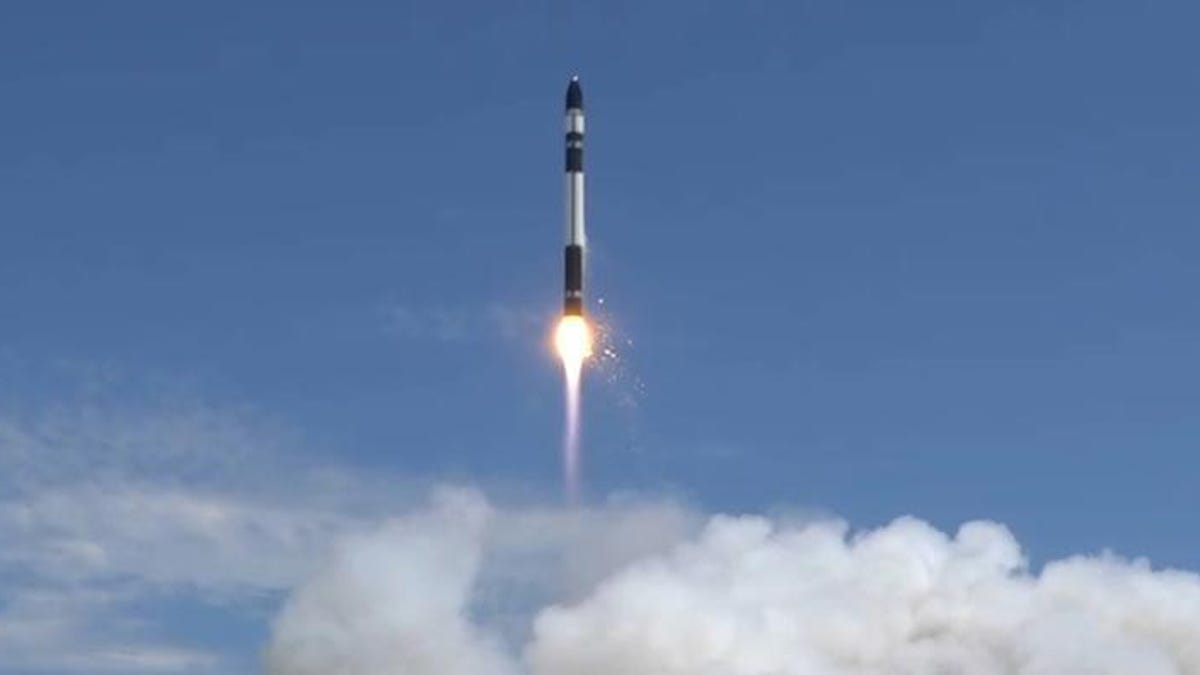How to see Rocket Lab launch Earth-watching satellites into orbit
The space startup will be sending a small telescope and several other satellites aloft on Wednesday.

An Electron rocket in flight.
Space startup Rocket Lab is hoping to blast off again next week, and you can watch the mission right here. The company plans to send 10 small satellites to low-Earth orbit atop one of its Electron rockets, which was scheduled to lift off from the company's New Zealand launch facility Wednesday, but the mission was postponed at the last minute.
"We're standing down from today's attempt. Some sensors are returning data that we want to look into further. We have back up opportunities until Nov. 3," the company wrote on Twitter.
A few days later Rocket Lab announced a new launch time for Oct. 28 at 2:14 p.m. PT.
Launch update: We are now targeting Oct 28 UTC for the In Focus launch. Waiting for a weather front to pass before getting back to the pad.
— Rocket Lab (@RocketLab) October 23, 2020
New launch time:
🚀UTC: 21:14, Oct 28
🚀PT: 14:14, Oct 28
🚀ET: 17:14, Oct 28
🚀NZT: 10:14, Oct 29 https://t.co/MVL3ExxP4v
Rocket Lab's boosters are smaller and designed for lighter payloads than SpaceX and other competitors. This mission, dubbed In Focus, will loft nine new SuperDove satellites for Planet, which operates the largest constellation of Earth-imaging satellites at the moment.
Also on board as part of a ride-share agreement will be a demonstration CubeSat from Canon that's equipped with a medium-size telescope and ultra-high-sensitivity camera to capture images of the Earth and moon.
Rocket Lab has plans to begin recovering its rockets in the future using a daring helicopter maneuver, but we won't be seeing anything like that with this mission. The Electron rocket will be expended and fall into the Pacific Ocean.
It should still make for a launch worth watching, however. Once we have a the launch video feed, we'll embed it here.

